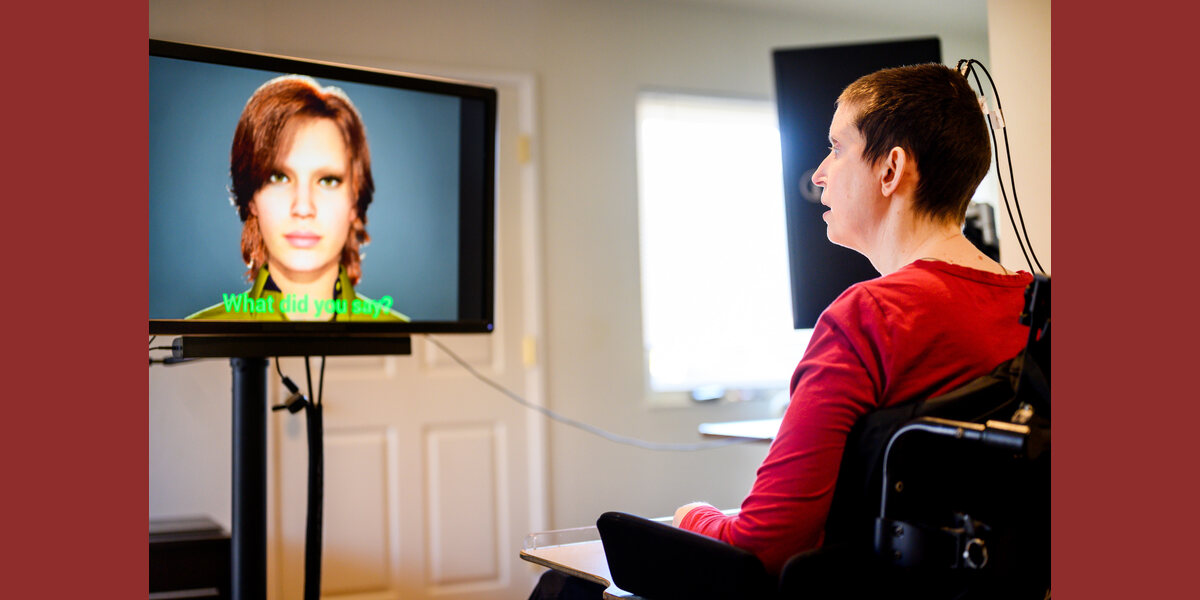In a groundbreaking medical breakthrough, AI helps woman speak, who had suffered from a brainstem stroke 18 years ago, but now, thanks to cutting-edge technology, her voice has been resurrected!
Ann Johnson Speaks After 18 Years: AI Helps Woman Speak Again!
Ann Johnson’s life took an unexpected turn at the age of 30 when a sudden brainstem stroke left her paralyzed and robbed her of her ability to speak.
For nearly two decades, she navigated a world of silence and physical limitations. However, a beacon of hope emerged in the form of AI-assisted communication.
Implanted with more than 250 electrodes in her brain, Ann’s brain signals were harnessed with the aid of a small port on her head, connecting these electrodes to a cluster of computers.
This array of electrodes targeted the brain region responsible for speech processing. By intercepting her brain’s signals, the system translated them into an avatar, personally chosen by Ann, which represented her on a screen.
The breakthrough moment comes when the avatar vocalizes the thoughts Ann formulates. This synthesized voice stems from a 15-minute speech she delivered on her wedding day, recorded years ago. The avatar not only speaks but also mimics lifelike facial expressions, blinking and emoting as Ann would.
The process involved meticulous training, where Ann collaborated with the research team to calibrate the AI algorithm.
The system learned to decode her distinct brain signals associated with speech by repetitively practicing a set of 1,024 conversational words until it recognized the intricate patterns of brain activity linked with speech sounds.
Dr. Edward Chang, the chairman of neurological surgery at the University of California, San Francisco, encapsulated the endeavor as one aimed at restoring people’s identities. The motivation is to empower individuals with their essential means of expression, an aspect that goes beyond mere communication.
Ann’s journey has been fraught with challenges; the unexpected stroke stripped her of muscle control and even the ability to breathe independently.
Years of arduous physical therapy were required for her to regain limited facial muscle movement, enabling her to convey emotions like laughter. With a young daughter, stepson, and a 26-year marriage, the stroke irrevocably transformed her life.
Guided by her own experience, Ann has actively collaborated with researchers from UC San Francisco and UC Berkeley to refine the brain-computer technology that could revolutionize communication for individuals facing similar predicaments.
The innovation paves the way for effortless communication through digital avatars, potentially transforming the lives of countless others.
Ann Johnson’s journey from silence to speech, catalyzed by the synergy of AI and human perseverance, marks an awe-inspiring breakthrough in medical science.
Through the intricate fusion of neuroscience and technology, her ability to communicate has been rekindled, promising a brighter future for those who have lost their voices due to debilitating conditions.
This innovation transcends the boundaries of mere technology; it is an embodiment of hope and the unwavering human spirit to overcome adversity.








Leave a Reply
You must be logged in to post a comment.